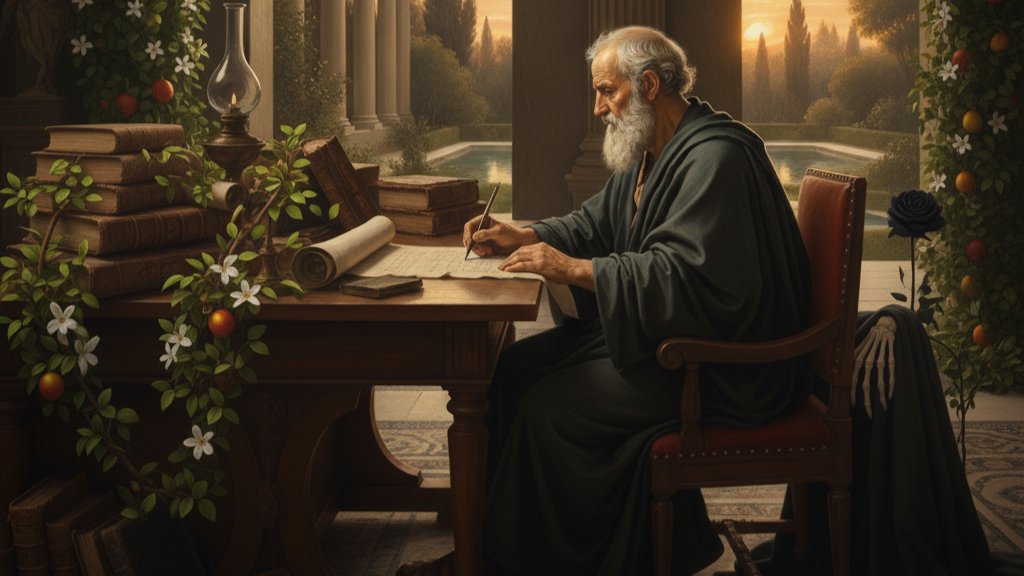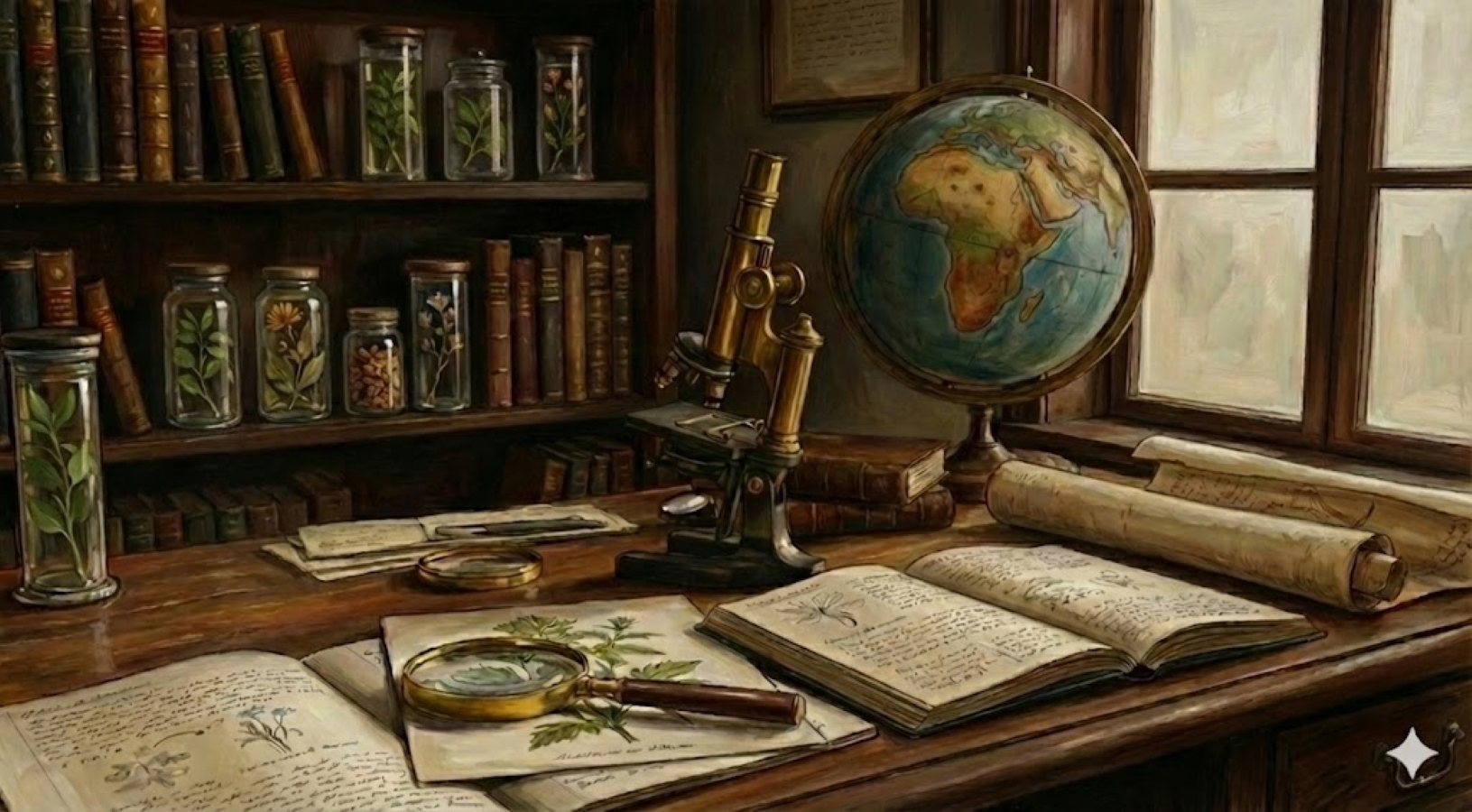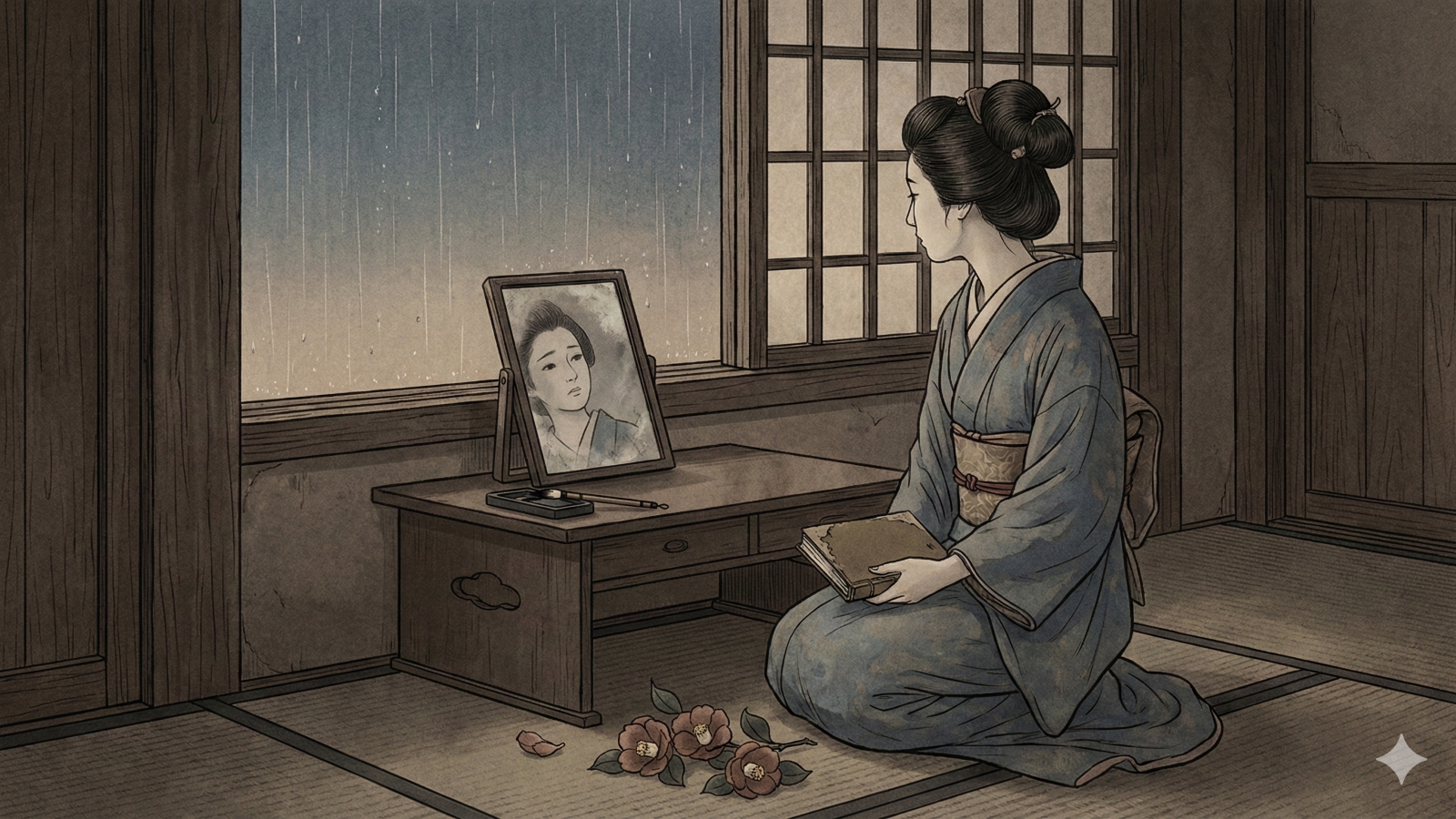The Unshakable Mind and the Art of Living - A Compass for Life from the Stoic Philosophers
Anger, anxiety, sorrow... why are our minds so easily disturbed? The Stoic sages—Marcus Aurelius, Seneca, and Epictetus—found the answer not in external events, but within our own "perception." We invite you on a journey to explore the timeless "art of living," a technique for maintaining an unshakable mind.

“ὁ κόσμος ἀλλοίωσις, ὁ βίος ὑπόληψις.”
“The world is change, life is perception.”
—— Marcus Aurelius Meditations, 4.3.4
[Commentary]
Like the ceaseless ebb and flow of the tides, the world is in a state of constant transformation. But what, then, truly determines the course of our lives? The Roman Emperor Marcus Aurelius condensed the core of Stoic thought into this short couplet. According to him, whatever happens in the external world cannot, in itself, touch our soul. The issue lies in our inner judgment—how we “perceive” that event. These words teach us that the “art of living,” the key to maintaining an unshakable mind in a world of perpetual change, is to correctly orient our own perception. It is not external events, but our own way of seeing things, that steers the ship of our life.
“Τοῦτο ἔχει ἡ τελειότης τοῦ ἤθους, τὸ πᾶσαν ἡμέραν ὡς τελευταίαν διεξάγειν.”
“This is the perfection of character - to live each day as if it were your last.”
—— Marcus Aurelius Meditations, 7.69.1
[Commentary]
If today were the last day of your life, what would you do? This sharp question was one of the mental exercises the Roman Emperor Marcus Aurelius imposed upon himself. He believed that a person of perfected character (ἤθος) lives each day as the culmination of their entire life—earnestly, yet without haste or agitation. This is not merely an eschatological idea, but rather an “art of living” designed to concentrate all value into the present moment. By freeing ourselves from anxiety about the future and regret for the past, we can fully perform the duties of the here and now. Therein, he believed, lies the key to a fulfilled existence.
“Κάλλιστα διαζῆν, δύναμις αὕτη ἐν τῇ ψυχῇ, ἐὰν πρὸς τὰ ἀδιάφορα τις ἀδιαφορῇ.”
“To live most beautifully, this power is in the soul, if one can be indifferent to things that are indifferent.”
—— Marcus Aurelius Meditations, 11.16.1
[Commentary]
What separates a beautiful life from one that is not? The Roman Emperor Marcus Aurelius taught that the answer lies not outside of us, but within our own soul. The “indifferent things” (ἀδιάφορα) he speaks of refer to matters we cannot completely control, such as wealth, health, and reputation. To possess the strength to remain untroubled by and indifferent to these external matters—that, he believed, is the very power to live most beautifully. These words suggest that the essence of a superior “art of living” is to discern what is worth valuing and what should be let go.
“μακρὰν ἀπʼ αὐτοῦ οὐ μόνον τὰς χεῖρας, ἀλλὰ πολὺ πρότερον τὴν ὄρεξιν.”
“Keep not only your hands away from it, but long before that, your desire.”
—— Epictetus Discourses, 4.1.77
[Commentary]
When we cannot obtain what we want, our minds are thrown into turmoil. How, then, can we maintain our peace of mind? The Stoic philosopher Epictetus declared that the problem lies not with the object itself, but with our “desire” (ὄρεξις) for it. The “it” he refers to are things beyond our control, such as health and wealth. We must not only refrain from reaching for such things, but also avoid harboring the desire for them in the first place. These words teach us a more fundamental “art of living”—controlling the very movements of the mind. Only when we cease to pursue external things can we attain true internal freedom.
“ἄμεινον τῇ ἀληθείᾳ συγχωρήσαντα τὴν δόξαν νικᾶν ἢ τῇ δόξῃ συγχωρήσαντα πρὸς τῆς ἀληθείας ἡττᾶσθαι.”
“It is better to conquer opinion by yielding to truth than to be defeated by truth by yielding to opinion.”
—— Epictetus Gnomology, 28
[Commentary]
When truth and reputation diverge, which path should we choose? With this masterful antithesis, the Stoic philosopher Epictetus clearly points the way. He argues that to bend the truth for the sake of public opinion is to ultimately suffer defeat at the hands of truth itself. On the other hand, to stand with truth, even if it means a temporary loss of reputation, is to achieve a final victory over the hollow vanity of public esteem. These words teach us that a wise “art of living” is to be guided by universal truth, rather than being swayed by immediate gains or the judgment of others.
“Vivere tota vita discendum est et […] tota vita discendum est mori.”
“Throughout life, one must learn to live, and […] throughout life, one must learn to die.”
—— Seneca De Brevitate Vitae, 7.3
[Commentary]
When does a person learn “to live”? The Roman philosopher Seneca, criticizing those who squander their time, wrote these words to convey the difficulty of truly “living.” He believed that many people, caught up in daily trifles, end their lives without ever mastering the art of living. This striking parallel construction powerfully asserts that living—and even dying, which is a part of it—is a skill that must be consciously acquired. This is not just a matter of mindset; it vividly illustrates the Stoic perspective of life as a “technique” that demands constant learning and practice. Perhaps each day we live is but a single moment in this grand apprenticeship.
“Nihil differamus. Cotidie cum vita paria faciamus.”
“Let us postpone nothing. Every day, let us settle the accounts with life.”
—— Seneca Ad Lucilium Epistulae Morales, 101.7
[Commentary]
Is the phrase “I’ll do it tomorrow” a sweet comfort or a poison? The Roman philosopher Seneca, emphasizing the uncertainty of the future, sternly admonished the habit of procrastination. He likened life to a ledger, believing that at the end of each day, we should settle its debits and credits and balance the accounts. This is an “art of living” that treats each day as a complete life in itself, to be lived fully and without regret. These two powerful imperatives teach us the importance of making the present moment securely our own, rather than placing our hopes in an uncertain future. Perfecting today is what leads to a fulfilled life.
“Αἰδοῦ σαυτὸν καὶ ἄλλον οὐκ αἰσχυνθήσῃ.”
“Respect yourself, and you will not be ashamed before others.”
—— Theophrastus Fragmenta varia, 155
[Commentary]
How can we avoid embarrassing ourselves in front of others? Theophrastus, a disciple of Aristotle, teaches that the answer lies not in the eyes of others, but within ourselves. This concise maxim means that if you always strive to act in a way that you would not be ashamed of yourself, you will consequently never find yourself in a situation where you blush before others. In other words, the strictest overseer should be your own conscience. These words teach us the importance of living according to an internal standard, without being swayed by the evaluations of others. This is the foundation of a universal “art of living”—the establishment of a firm and unwavering self.
ἀλλ’ ἔστιν εἰπεῖν ζῶντα τοῦτʼ οὐ ποιήσω, οὐ ψεύσομαι, οὐ ῥᾳδιουργήσω.”
“A living person can say, ‘I will not do this; I will not lie, I will not do evil.’”
—— Plutarch On Tranquillity of Mind, 19
[Commentary]
While we can lament, “I never thought this would happen to me,” can we also vow, “I will not do this”? The author Plutarch offers a powerful rebuttal to the fatalistic words of the poet Menander, who suggested we cannot know what will happen. It is true that we cannot control what fate brings us. However, how we act in response to that situation—that is, “what we will not do”—is entirely within the power of our will. These words draw a clear distinction between unchangeable external fate and the internal choices we can make. To solidify one’s own moral resolve—that is the unwavering compass, the “art of living” for navigating an uncertain world.
“μανικὸν γάρ ἐστι τοῖς ἀπολλυμένοις ἀνιᾶσθαι μὴ χαίρειν δὲ τοῖς σῳζομένοις.”
“For it is madness to be distressed by what is lost and not to rejoice in what is left.”
—— Plutarch On Tranquillity of Mind, 8
[Commentary]
When you see a glass with water filled to the halfway mark, do you lament that “it’s already half empty” or rejoice that “it’s still half full”? The author Plutarch recounts an anecdote of the philosopher Aristippus, who addressed a friend grieving over lost property. To suffer for the one thing that is lost while not rejoicing in the many things that still remain, he said, is a form of madness. These words teach us the importance of our mental habits—of where we choose to place our focus. To look at what we have, rather than what we lack; this is an extremely practical “art of living” that can greatly influence our happiness in life. Happiness is determined not by the quantity of what we possess, but by how we choose to see it.
(Editorial Cooperation: Tomomi Nakayama, Keito Utsumi)

Japanese Views on Seasons - The Gaze of Literary Figures
Japanese literary figures have deeply engaged with the shifting seasons and the workings of life through various forms of expression such as novels and essays. Their delicate sensibilities and keen powers of observation open the door to a dialogue with nature for us, teaching us the beauty and philosophy hidden within everyday landscapes.

Japan's Primal Landscapes - A Tale of Memories Told by the Land
Superimposing the deceased onto the buzzing of flies, seeing gods in one-legged scarecrows. For Japanese people, these mysterious stories were not fantasy, but "life" itself, right next door. Longing for lands beyond the sea, legends remaining in ancient mounds. Why not travel through the frightening yet gentle "primal landscapes of the heart" gathered by Kunio Yanagita, Lafcadio Hearn, and others?

To Wonders Beyond Logic - The Beautiful Abyss Peered into by Scientists
Science is not just cold calculations. It is awe for nature beyond human understanding and an endless quest for beauty. Seeing the universe in a snowflake, feeling the ferocity of life in roadside grass... These are the adventurers of knowledge who confronted the overwhelming "mysteries" that appear only at the end of logic. We touch upon the records of their quiet yet passionate souls.

The Soul Screaming "I" - Stories of Fate and Pride by Modern Women
Should women's lives be plastered over with resignation to fate? Or is it a battle to break through social barriers and win one's own "life"? The dry self-mockery spat out by Ichiyō, the poignant scream released by Akiko for her beloved. We listen to the cries of their souls as they resisted the chains of their era, struggling through the mud to establish the "self."